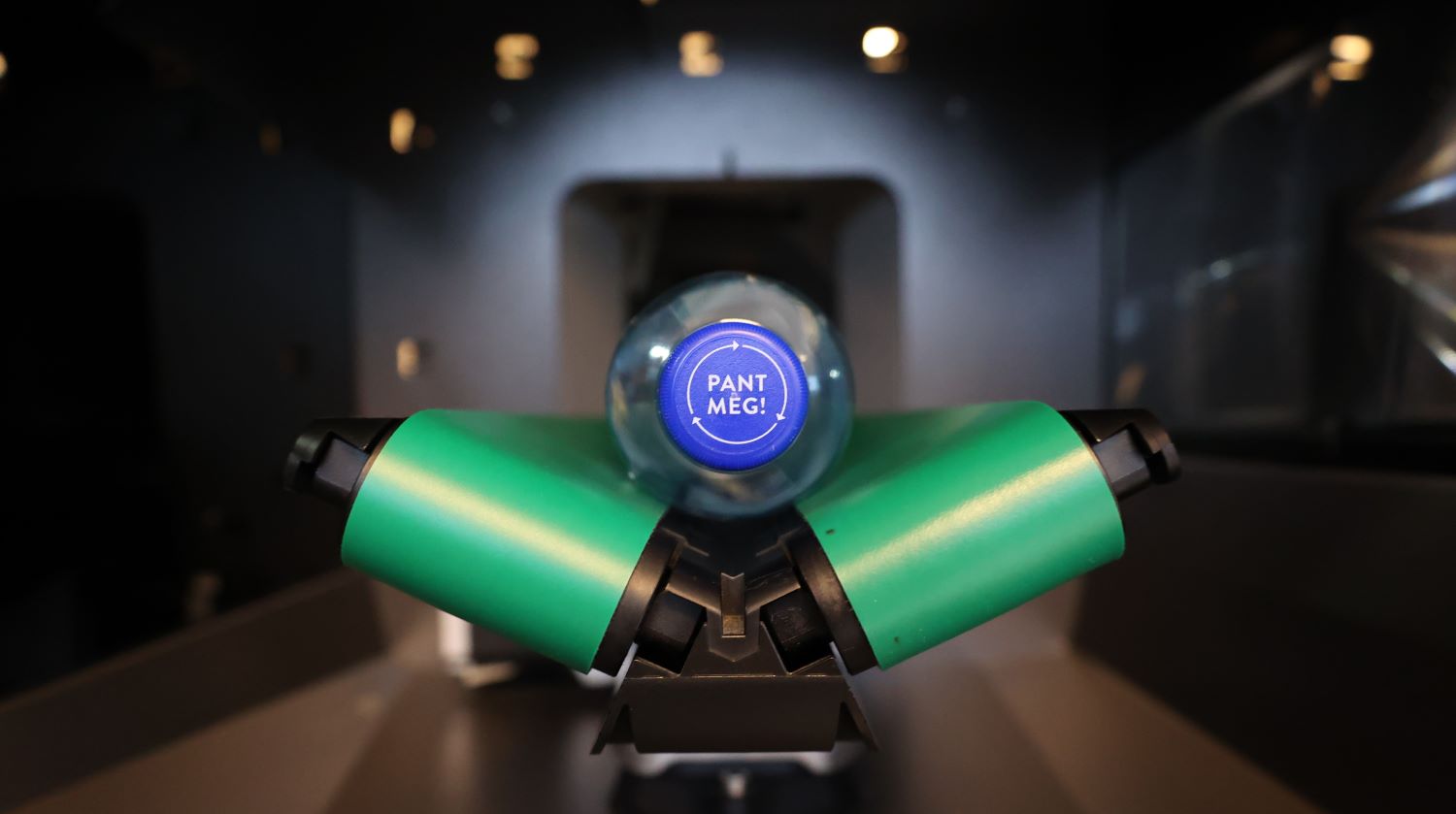Making recycling smarter: TOMRA and AI
In the ever-evolving world of technology, a notable shift is capturing the attention of industries worldwide. AI is reshaping our understanding of technology and redefining the way we approach our daily tasks and long-term projects.
TOMRA AI Summit 2023
On 28-29 November, TOMRA hosted in Oslo a company-wide AI Summit, bringing together 85 TOMRA team members physically and virtually for talks and workshops on AI. The event consisted of two days of interesting talks and a collaborative workshop, with a goal to inform, inspire and interact. The agenda spanned infrastructure, recognition, machine learning and generative AI, and included guest speakers from TOMRA technology partners Microsoft, Google and PolyPerception.

AI technology is already playing an important role in many industries, and this will only increase in the future. This technology will positively contribute to our mission to Lead the Resource Revolution.
Applications for artificial intelligence in TOMRA
At this year’s EuroShop, the world’s largest retail trade fair, TOMRA previewed reverse vending concepts utilizing AI. The “over-the-air" digital concept, with dashboards powered by AI, brought together different reverse vending data and functionalities – including notifications about action needed at the machine (such as bin emptying), information on cleaning and usage to better plan day-to-day operations, and self-configuration options.
A second, “smart service” concept at EuroShop used AI to ensure maximum machine uptime and avoid unplanned repairs. It shows retailers the health of RVM components, and proactively notifies operators about action needed or TOMRA servicing activities under way. The concept focused on predictive service and maintenance, using machine learning to help TOMRA service technicians see, for example, when the compactor (for crushing containers in an RVM) would need to be changed. The concept seeks to extend the lifetime of components, make operations more efficient, and give peace of mind for operators.

TOMRA’s other divisions are also exploring the applications of AI for their solutions.
- TOMRA Food: In food sorting, AI provides opportunities to detect more defects than are visible to the human eye or traditional optical technologies, leading to less waste, higher yield and increased profitability for food growers and processors. TOMRA Food first deployed deep-learning models in early 2019 with LUCAi sorters, and in 2023 has released several new solutions powered by deep learning and machine learning.
- TOMRA Recycling: AI is incorporated in TOMRA’s sensor-based sorting machines, including those for mixed waste, metal and wood sorting. In the past few years, TOMRA Recycling has invested in deep-learning-based sorting technology, which allows sorting facility operators to detect and recover materials that cannot be sorted with traditional technology. The division already has some deep-learning applications launched and will further invest in developing additional solutions in the near future.
“AI is not new to TOMRA. We are one of the few companies that have already used and commercialized deep-learning algorithms as part of our sorters, both for the food and recycling segments. There it’s used as a complement and enhancement to our existing machines,” explained Tove Andersen.
There are a lot of different opportunities for AI. Imagine a tool that can continuously learn, adapt, and produce results tailored to our specific needs. That's the potential generative AI holds, also for our organization.

TOMRA’s principles for the exploration of AI
As interest around AI in business and technology accelerates, discussions around the guiding principles become critically important.
“TOMRA wants to ensure that we develop and input data into AI systems in a closed and secure environment, thoroughly examining how we can use AI with good policies and compliance, while also protecting our intellectual property,” explained Mickaël Fontaine.
“Everything that is visible to us as humans, a machine can be trained to detect with a camera. This creates great opportunities. We need to be open to thinking differently, to think about new ways to understand needs and develop solutions,” said Tove Andersen. “I believe that TOMRA needs to take a positive role to ensure that the technology is deployed in a way that contributes to our mission to Lead the Resource Revolution.”
The path ahead for AI in TOMRA Collection
TOMRA has already for the past years been working on the topic of AI, machine learning and deep learning, and will continue to focus on it as an important area for future development and competence in the company.
“AI is a great opportunity to enhance reverse vending for all stakeholders. We are excited to host the TOMRA AI Summit, bringing together so many eager and bright minds, and truly building collaboration across the company in this integral area,” said Mickaël Fontaine.
“TOMRA Collection is looking at AI’s applications for product development both in terms of evolution of our current reverse vending portfolio and a true revolution of our future work – while developing with good policies for safety and compliance.”
We look forward to working further on AI and delivering on its potential to bring an even greater drink container recycling experience for consumers and operators.


Learn more about TOMRA's reverse vending technology

What’s inside reverse vending machines?

Sensor technology in reverse vending







